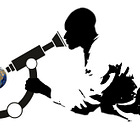In certain political and geopolitical hypotheses, Western bosses appear as Machiavellian actors who, working in secret, or at least in a narratively camouflaged manner, actively undermine Western democratic institutions and citizen rights.
Some such behaviors have been historically documented. For example, it was discovered in the 1980s, in the Iran-Contra Affair, that, going all the way to the top, US government bosses were secretly sending billions of dollars in weapons to the number one terrorist enemy of the United States: Iran.
Historical examples like that have convinced me that a rigorous discussion of Machiavellian hypotheses should be encouraged rather than suppressed.
To encourage discussion I do something traditional in science: I explicitly pit Machiavellian hypotheses against each other and against more innocent explanations so that we can all reflect on this question: Which hypotheses best explain the evidence of political and geopolitical behavior?
Of course, some of the evidence is in dispute. In such cases, I also present documentation and arguments to dispute certain alleged facts and support contrary claims. As is customary in science, I mean to provoke debate.
Unfortunately, however, it is both traditional and customary among the university-educated to tag any such effort ‘conspiracy theory’ and to count this tagging (magically) as an all-purpose ‘demonstration’ of the alleged error of all Machiavellian hypotheses—which must be quickly hushed in polite society lest all present become disabled by shame. For the university-educated, conspiracy theory is taboo.
This taboo has long undermined investigations into possible clandestine undemocratic wrongdoing by powerful bosses in the democratic West. In other words, the taboo protects the bosses from scrutiny.
That’s interesting.
So interesting, in fact, that the taboo on conspiracy theory should, itself, become the object of anthropological, political, and historical study. Whence this taboo? How was it institutionalized? How does it operate, sociologically?
I intend eventually to address all of these questions. For the moment, I have begun exploring how the conspiracy-theory taboo operates sociologically:
And I also have some recommendations on how we can better apply ourselves scientifically when we do conspiracy theory:
I believe this work is indispensable if democratic society in the West is to have any future. That’s why I do it.








